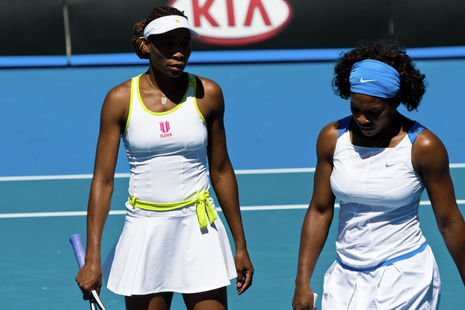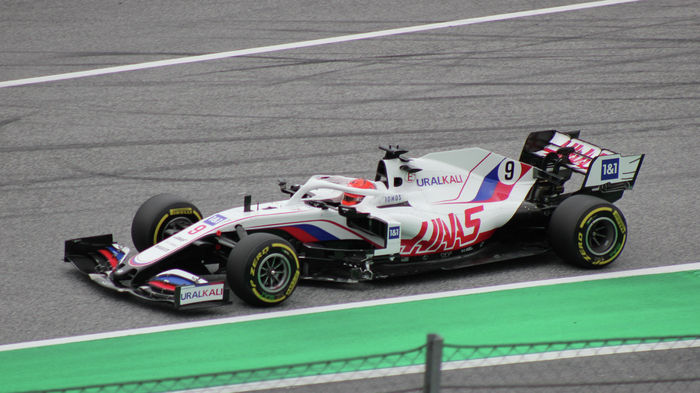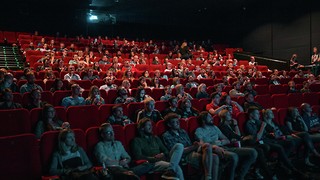Sporting pedigree: it’s a family affair
Deputy Sports Editor Damola Odeyemi and Staff Writer Alexander Grantham celebrate the greatest familial dynasties of elite sports

Sportspeople at the highest level are more than just athletes; they possess a certain level of celebrity. The wider public takes an interest in their lives outside of performances, and their families tend to be a go-to subject. As avid watchers of a variety of sports, we begin to notice the emergence of sporting heritage or even dynasties. This presents an intriguing discussion of how elite athletes come to be where they are and what gave them such near-superhuman abilities in the first place.
To an armchair fan, the Korda family may not ring a bell, but to keen followers of tennis it will be more than familiar. Sebastian Korda is a 20-year-old player currently ranked at world number 42, and rising rapidly. His impressive form draws much attention, as he is often touted as the future of American tennis. Meanwhile, his father, Petr Korda, was a Czech tennis player who peaked at second in the world and was the Australian Open champion in 1998. Sebastian’s mother, Regina Rajchrtova, was also a Czech player who once reached 26th in the world.
The Korda dominance does not end there, however, as both of Sebastian’s older sisters are two of the world’s most accomplished active female golfers. Nelly and Jessica are — right now — ranked first and seventh in the Ladies Professional Golf Association (LPGA) respectively. They recently represented Team USA in last month’s Solheim Cup, narrowly losing to Team Europe.
“[I]n addition to providing exposure and personal guidance, these families are able to afford the best lessons and send their offspring to the finest training academies.”
But the Korda family’s impressive talent is not a rarity in elite sports; in fact, these biological links crop up fairly regularly. Footballers Erling Haaland and Kasper Schmeichel both have fathers who played for their respective international sides, while the Maldini dynasty is still going strong in its third generation with Daniel Maldini at AC Milan.
Beyond football, Major League Baseball’s (MLB) three Molina brothers were all excellent catchers who peaked at the same time, each winning a World Series at least once. Crossing over to tennis, no doubt the most famous and decorated of the lot are the Williams sisters, Venus and Serena, with 7 and 23 Grand Slam titles respectively. The duo were the face of women’s and American tennis for the best part of a decade.
Knowing that ‘sportiness’ is apparently not a random trait, it begs the rather banal question of whether elite athletes are born with such talents or whether they, in a loose sense, learn it. This is the root of the age-old nature vs. nurture debate, and an easy conclusion to arrive at is that it’s a bit of both. Other than parents providing the ‘sporty’ genes, sport is likely to be a common topic of discussion for a family of sportspeople. Subsequently, these children will have increased exposure to and awareness of sport and physical conditioning, taking inspiration from parents to build up the necessary foundations and, effectively, get a head start on their peers.
“Occasionally, all the stars align and, with the right resources, right talent and, crucially, right family, the path to sporting super-stardom is clear”
Parents that already have sporting experience are also able to streamline their child’s pathway to the highest level. Elite sporting families, such as the Korda’s and the Maldini’s, are all financially comfortable, meaning that, in addition to providing exposure and personal guidance, these families are able to afford the best lessons and send their offspring to the finest training academies. This sort of privilege is even more pronounced in the case of less accessible sports like Formula 1 and golf.
In the field of F1, a family’s financial aid can continue well past providing the fundamentals for an aspiring driver, with nepotism pervading the senior competition. The Haas Formula 1 team gave their 2021 seat to Nikita Mazepin, whose multi-billionaire father Dmitry is one of their biggest investors. Whether Nikita deserved the seat is another issue, but the question remains: would he be in such a position without his father’s money? It’s unlikely.
Sheer talent can only take you so far in the cutthroat world of elite sports; Ravel Morrison is a case in point. A Manchester United youngster once compared to Cristiano Ronaldo and Ryan Giggs by Sir Alex Ferguson, and described as “better than Paul Pogba” by Wayne Rooney, Morrison has endured a stop-start career and ironically now plays under Rooney for cash-strapped Derby County, following mediocre spells in Sweden and Turkey. His struggles had nothing to do with his physical aptitude for football, but instead problems with personal attitude and the law. Conversely, this is a situation rarely seen amongst the children of sportspeople, as fostering the right sporting mentality is simply a part of their upbringing.
Briefly putting aside nature and nurture, it’s fair to say that, like in all aspects of life, luck also plays a vital role. Occasionally, all the stars align and, with the right resources, right talent and, crucially, right family, the path to sporting super-stardom is clear, leaving only a poorly-timed tackle in training or an over-extended swing on the green to derail predestined fate. Laura Robson, a teenage prodigy once described as the next big thing in British tennis, is a perfect illustration of luck’s unfavourable capabilities, after suffering numerous injuries despite being raised in a well-off household with a professional sportswoman for a mother.
As the camera lens widens to inevitably keep tab on the private lives of athletes away from the field, court, and track, it’s not too dystopian to imagine a future where, just as reality TV buffs tune in religiously to observe the Kardashian clan’s newest antics, sports fans pack out terraces to eyeball the latest in the long line of Messis or Ronaldos.
 News / Tompkins Table 2025: Trinity widens gap on Christ’s19 August 2025
News / Tompkins Table 2025: Trinity widens gap on Christ’s19 August 2025 News / Delayed May Ball payments a ‘slap in the face’, say student workers21 August 2025
News / Delayed May Ball payments a ‘slap in the face’, say student workers21 August 2025 Interviews / Roger Mosey’s farewell to Cambridge21 August 2025
Interviews / Roger Mosey’s farewell to Cambridge21 August 2025 News / Pro-Palestine activists urge new Chancellor to ‘condemn Israel’20 August 2025
News / Pro-Palestine activists urge new Chancellor to ‘condemn Israel’20 August 2025 Comment / Yes, I love Britain20 August 2025
Comment / Yes, I love Britain20 August 2025









